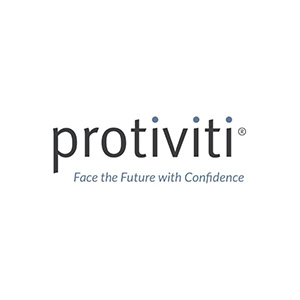“One of the biggest challenges facing businesses today is identifying experienced IT professionals who can execute digital transformation backlog and run digital operations. Attracting and retaining talent is a challenge for traditional enterprises in particular, especially when competing against successful enterprises from Silicon Valley.” So says Rodrigo Bernardinelli, Digibee Co-Founder and CEO, when he spoke with us about the industry’s IT needs.
“Fewer college students are graduating with Computer Science or Engineering degrees, and even big IT services providers can’t fulfill customers’ demands,” says Bernardinelli. “Businesses are faced with long backlogs and piles of technical debt. The legacy systems in place need to be open and have an architecture that can securely scale for digital demands.” To help solve this challenge, Digibee has created a modern integration architecture platform which improves time to market and provides the flexibility to build new digital products and services.
Digibee works with their customers to reframe the system integration model and connect business ecosystems. The company solves a complex IT problem in a simple and fast way through its Hybrid Integration Platform (HIP), enabling flawless innovation and digital transformation. Bernardinelli explains, “We are standardizing and automating the integration work with our low-code platform in a way that will dramatically reduce the burden on IT personnel while modernizing enterprise architecture for security and scale. Our platform acts as a layer of digital technology on top of current enterprise systems, providing secure access to data, automating workflows, and the flexibility to create new products and services from existing data.”
An Outstanding Approach
Cloud technologies disrupted IT infrastructure for good by abstracting complex technology into easy-to-consume services. Digibee’s team harnesses the potential of the same abstract approach toward the enterprise integration stack. The enterprise integration stack can be composed of more than 20 different tools, such as ESBs, API Gateways, File Transfers, Monitors, etc. This stack is complex and expensive to maintain, and that’s where Digibee comes in. Bernardinelli points out, “Our platform simplifies the integration technology stack without being simplistic. We realize enterprise customers have unique requirements around security, performance, and scale, so we simplified how to manage their integration stack without losing sight of those requirements.” The company continues to evolve its integration platform to support legacy, current, and future systems architecture needs, relieving its customers of that burden and helping them adopt a future-proof architecture. The key to unlocking innovation is to understand and combine available data, systems, and services. Digibee’s unique approach helps its customers better understand their data and data flows. The solution automates the integration development work, which allows IT teams to focus on revenue-generating innovation experiences instead of cumbersome integration work
Integration Redefined
Another aspect that makes the company stand out from the crowd is its advanced integration model. “We have science applied to the specific integration challenge, without blurring with application coding. We isolate the end-points as they are, no matter what technology or protocols they were built with. Then we think about the data flows between those end-points. All transformation, cleaning, orchestration, or enrichment is needed to successfully deliver data from the provider end-point to the consumer end-point. We use a low-code approach to build integration flows, review in test environments, and launch to production. The platform is also capable of monitoring and troubleshooting,” explains Bernardinelli.
The advanced Digibee model facilitates the creation of business ecosystems in two ways: translation and prioritization. There is no common development language between applications, especially when those applications are owned by different organizations. Even with the advent of APIs, they are not widely available in legacy applications, and there is no standardization of data. The Digibee model acts as a translator, plugging in every application or API available in order to easily integrate data. Second, even when the team solves the technology challenges, different organizations still have to align their backlogs for a common goal. Very often, IT teams need to change and adapt current systems for integration purposes. Since the Digibee model keeps the end-points, the company facilitates backlog prioritization toward ecosystems creation.
The Customer-Centric Approach
Digibee is digital transformation focused on customer-centricity, continuous improvement, and time to market. At Digibee, the team streamlines all back- and front-end solutions behind the scenes to meet the needs of the end customer. In addition to helping its clients migrate their workloads to the cloud and modernize their architecture, Digibee’s unique approach empowers clients to focus on what matters most: their data. “We know that we already have the greatest infrastructure and platform. We realized that integration is not only a technical issue, but also a social issue. We align the backlog of different teams with concurrent priorities, so we are able to solve the technicality of the problem and deliver a better solution for the end customer.”
The industry demands on a company’s IT architecture are growing: it must be modern, nimble, and be able to connect to a growing number of devices. Fortunately, Bernardinelli has the solution: “We aim to create a network where enterprises can seamlessly do business in a streamlined ecosystem. We are already connected to some of the top retailers out there so that a new client can connect to the Digibee network and start doing business with these retailers. Our ultimate goal is to facilitate that digital infrastructure and make it seamless for our customers. Digibee has the unique and cutting-edge vision to help its customers leap into the future.”












